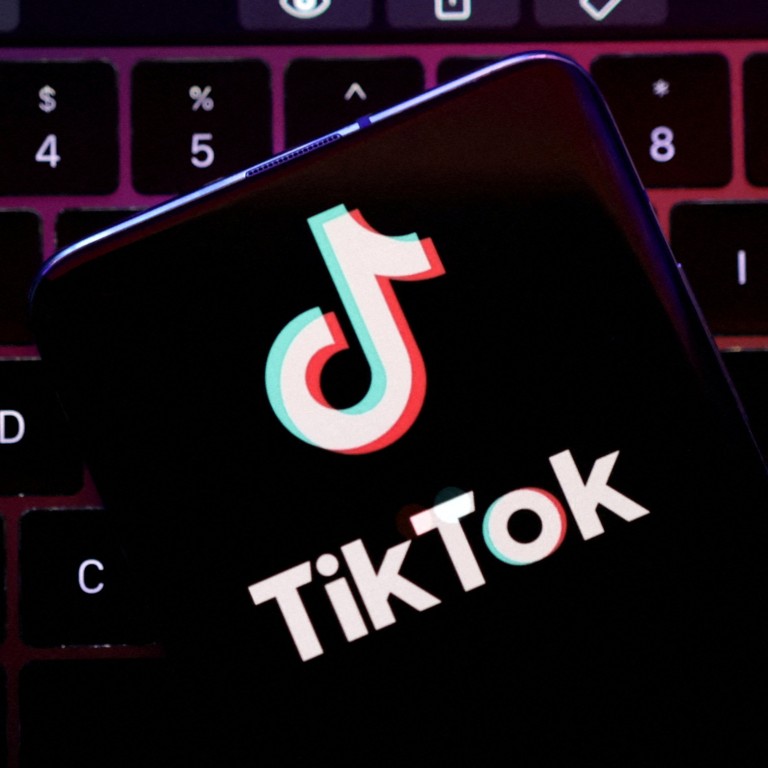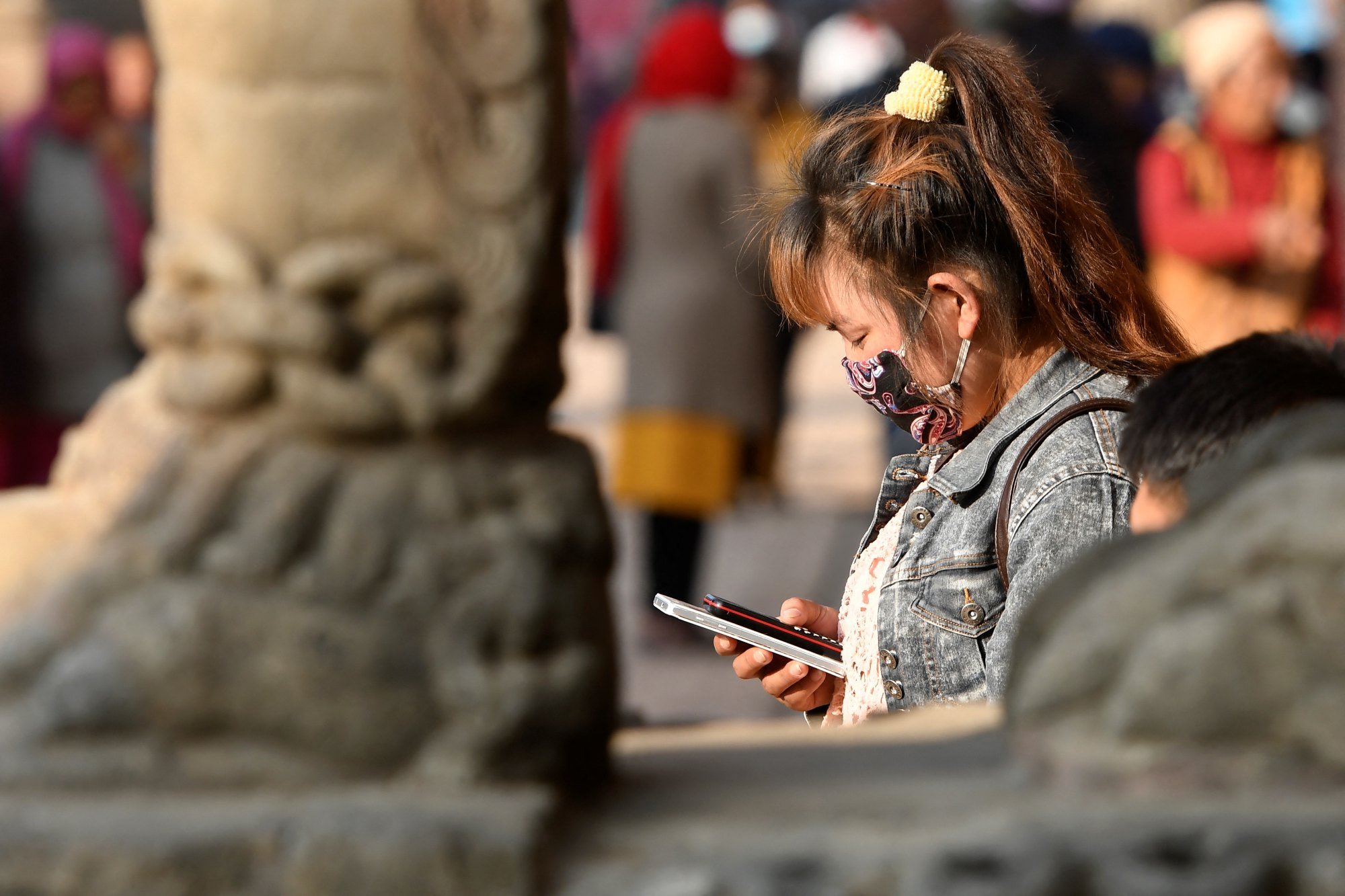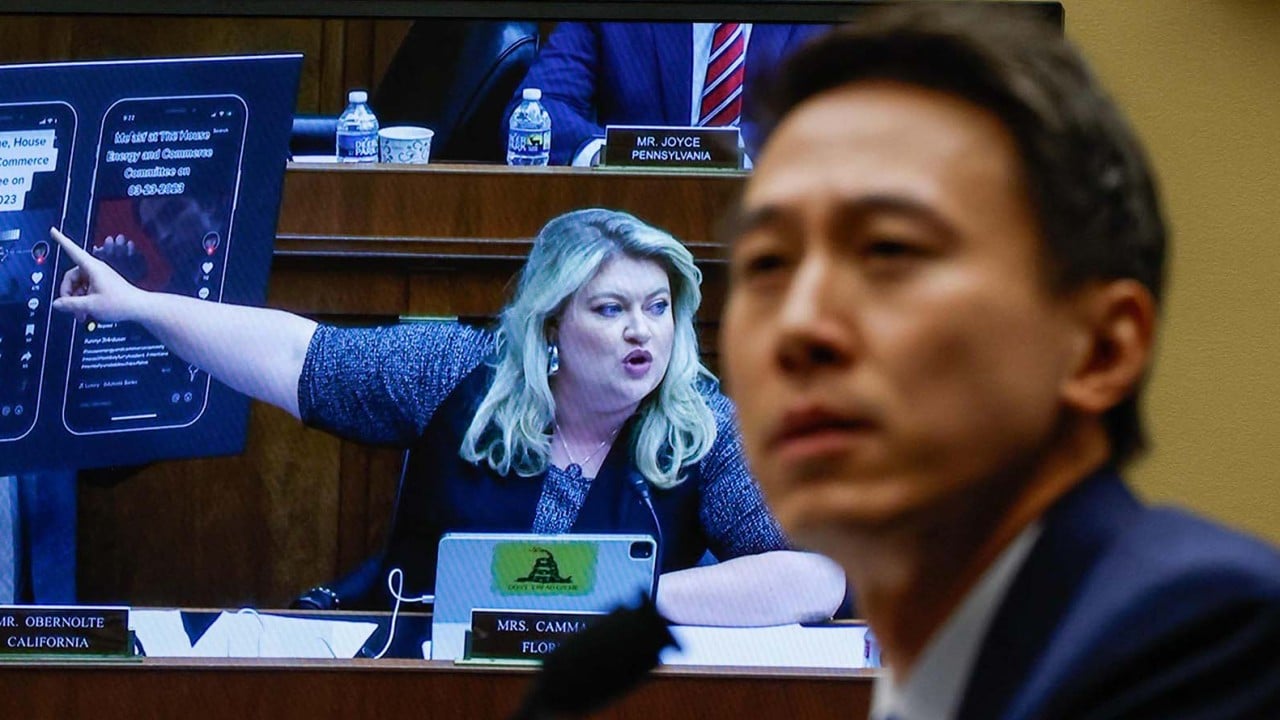
Nepal bans China’s TikTok for ‘disturbing social harmony’, in move critics say will stifle free speech
- More than 1,600 TikTok-related cybercrime cases have been registered over the last four years in Nepal, according to local media reports
- Politicians say the move seems to ‘stifle freedom of expression’ in Nepal and call for regulations to counter abuse of social media instead
Nepal’s government decided to ban the popular social media app TikTok on Monday, saying it was disrupting “social harmony” in the country.
The announcement was made following a Cabinet meeting. Foreign Minister Narayan Prakash Saud said the app would be banned immediately.
“The government has decided to ban TikTok as it was necessary to regulate the use of the social media platform that was disrupting social harmony, goodwill and flow of indecent materials,” Saud said.
He said that to make social media platforms accountable, the government has asked the companies to register and open a liaison office in Nepal, pay taxes and abide by the country’s laws and regulations.

It was not clear what triggered the ban or if TikTok had refused to comply with Nepal’s requests. The company did not immediately respond to an email seeking comment.
Hours after the decision was made public, videos on the ban had thousands of views on TikTok.
TikTok did not immediately respond to a request for comment on the matter. It has previously said such bans are “misguided” and that they are based on “misconceptions”.
Gagan Thapa, leader of the Nepali Congress party which is part of the ruling coalition, said the government’s intention seemed to “stifle freedom of expression”.
Indonesia arrests TikTokker for ‘blasphemy against Christianity’
“Regulation is necessary to discourage those who abuse social media, but shutting down social media in the name of regulation is completely wrong,” he said in a post on X, formerly known as Twitter.
“There are many unwanted materials in other social media also. What must be done is to regulate and not restrict them,” said Pradeep Gyawali, former foreign minister and a senior leader of the opposition Communist Party of Nepal (Unified Marxist-Leninist).
The decision comes days after Nepal introduced a directive requiring social media platforms operating in the country to set up offices.
Nepal banned all pornographic sites in 2018.
More than 1,600 TikTok-related cybercrime cases have been registered over the past four years in Nepal, according to local media reports.
TikTok, owned by China’s ByteDance, has faced scrutiny in a number of countries because of concerns that Beijing could use the app to harvest user data or advance its interests. Countries including the United States, Britain and New Zealand have banned the app on government phones despite TikTok repeatedly denying that it has ever shared data with the Chinese government and would not do so if asked.
Nepal’s neighbour India banned TikTok along with dozens of other apps by Chinese developers in June 2020, saying that they could compromise national security and integrity.
Another South Asian country, Pakistan, has banned the app at least four times over what the country’s government terms its “immoral and indecent” content.
EU investigates TikTok, AliExpress over child and consumer protection
Although TikTok lags behind the likes of Meta’s long-dominant trio of Facebook, WhatsApp and Instagram, its growth among young people far outstrips its competitors.
TikTok is the sixth most-used social platform in the world, according to the We Are Social marketing agency.
Multiple countries have sought to tighten controls on social media due to their potential impact on children.
Additional reporting by Agence France Presse, Reuters


